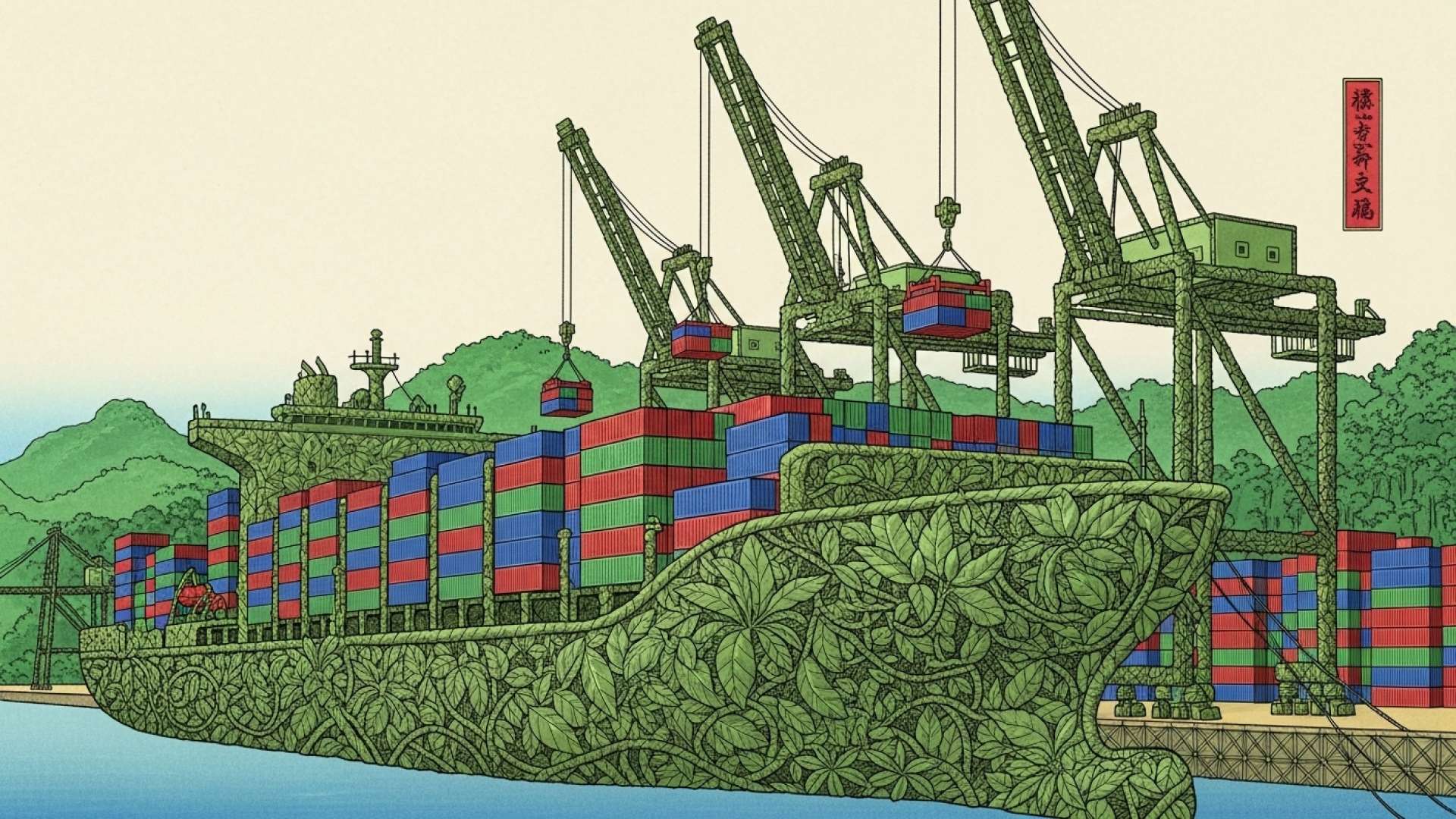Puntarenas, Costa Rica — Costa Rica’s primary Pacific port, Puerto Caldera, is facing a critical operational crisis, sparking alarm within the business community and raising concerns about the nation’s economic competitiveness. The Chamber of Commerce has sounded the alarm, warning of severe consequences for the country’s supply chain amid a heated exchange between the government and the Comptroller General’s office.
Arturo Rosabal, president of the Chamber of Commerce, described the situation as an “operational collapse,” emphasizing the detrimental impact on national competitiveness. Extended waiting times for vessels, import delays, escalating export costs, and disruptions to the national supply chain are just some of the challenges businesses are currently grappling with.
To gain a deeper legal understanding of the implications surrounding Puerto Caldera, we spoke with Lic. Larry Hans Arroyo Vargas, a prominent attorney at Bufete de Costa Rica.
Puerto Caldera’s strategic location presents unique legal challenges and opportunities. Developing its infrastructure requires careful navigation of maritime law, environmental regulations, and concessions for businesses seeking to operate within the port zone. Balancing economic growth with sustainable practices will be key to its long-term success, and legal frameworks play a crucial role in achieving this balance.
Lic. Larry Hans Arroyo Vargas, Attorney at Law, Bufete de Costa Rica
Lic. Arroyo Vargas expertly highlights the delicate balancing act facing Puerto Caldera. Indeed, the port’s future prosperity hinges on creating a legal environment that fosters economic development while safeguarding Costa Rica’s precious natural resources. This careful orchestration of legal frameworks will be essential to attract investment and ensure sustainable growth for generations to come. We thank Lic. Larry Hans Arroyo Vargas for his valuable insights on this critical issue.
Operational collapse in Caldera translates into increased waiting times for ships, delays in unloading imports, additional costs for exporters, and ultimately, a severe blow to the national supply chain.
Arturo Rosabal, President of the Costa Rican Chamber of Commerce
The controversy erupted following public statements by President Rodrigo Chaves, who suggested the Comptroller’s office was hindering essential expansion and improvement projects at the port. The Comptroller General’s office swiftly refuted these accusations, issuing a statement clarifying that no pending procedures related to Caldera were currently under review.
Instead, the Comptroller’s office pointed to “technical deficiencies” in the proposals and documentation submitted by the Institute of Pacific Ports (INCOP), a government entity under the Executive branch, as the primary reason for the delays. This public disagreement has further complicated the already strained situation at the port.
The ongoing institutional dispute highlights the urgent need for a resolution to prevent further damage to Costa Rica’s economy. The efficiency of ports like Caldera is crucial for the country’s foreign trade, directly influencing costs across all sectors. The current crisis threatens to undermine the country’s competitiveness and disrupt its vital supply chains.
The Chamber of Commerce urges swift action from both the government and INCOP to address the technical deficiencies and expedite the modernization of Puerto Caldera. A collaborative approach is essential to resolve the current impasse and ensure the port can effectively handle the nation’s growing trade demands.
Experts warn that prolonged delays will have far-reaching consequences for the Costa Rican economy, potentially impacting foreign investment and job creation. Resolving this critical infrastructure challenge should be a top priority for all stakeholders to safeguard the nation’s economic future.
The business community awaits concrete solutions and a clear timeline for the modernization of Puerto Caldera. The future of Costa Rica’s trade and economic stability hinges on the efficient operation of this vital port.
For further information, visit the nearest office of Costa Rican Chamber of Commerce
About Costa Rican Chamber of Commerce:
The Costa Rican Chamber of Commerce is a prominent business association representing the interests of the private sector in Costa Rica. It advocates for policies that promote economic growth, competitiveness, and a favorable business environment. The Chamber plays a key role in fostering dialogue between the government and the private sector on crucial issues impacting the national economy.
For further information, visit the nearest office of INCOP
About INCOP:
The Instituto Costarricense de Puertos del Pacífico (INCOP), or Costa Rican Institute of Pacific Ports, is the governmental entity responsible for the administration and development of Costa Rica’s Pacific ports. INCOP plays a vital role in facilitating trade and ensuring the efficient flow of goods through the country’s Pacific gateways.
For further information, visit bufetedecostarica.com
About Bufete de Costa Rica:
Bufete de Costa Rica distinguishes itself through an unwavering dedication to legal excellence and ethical practice. The firm’s innovative approach to legal solutions, coupled with a deep commitment to educating and empowering communities through accessible legal knowledge, solidifies its position as a leader in the Costa Rican legal landscape. Their work transcends traditional legal services, actively contributing to a more just and informed society.









